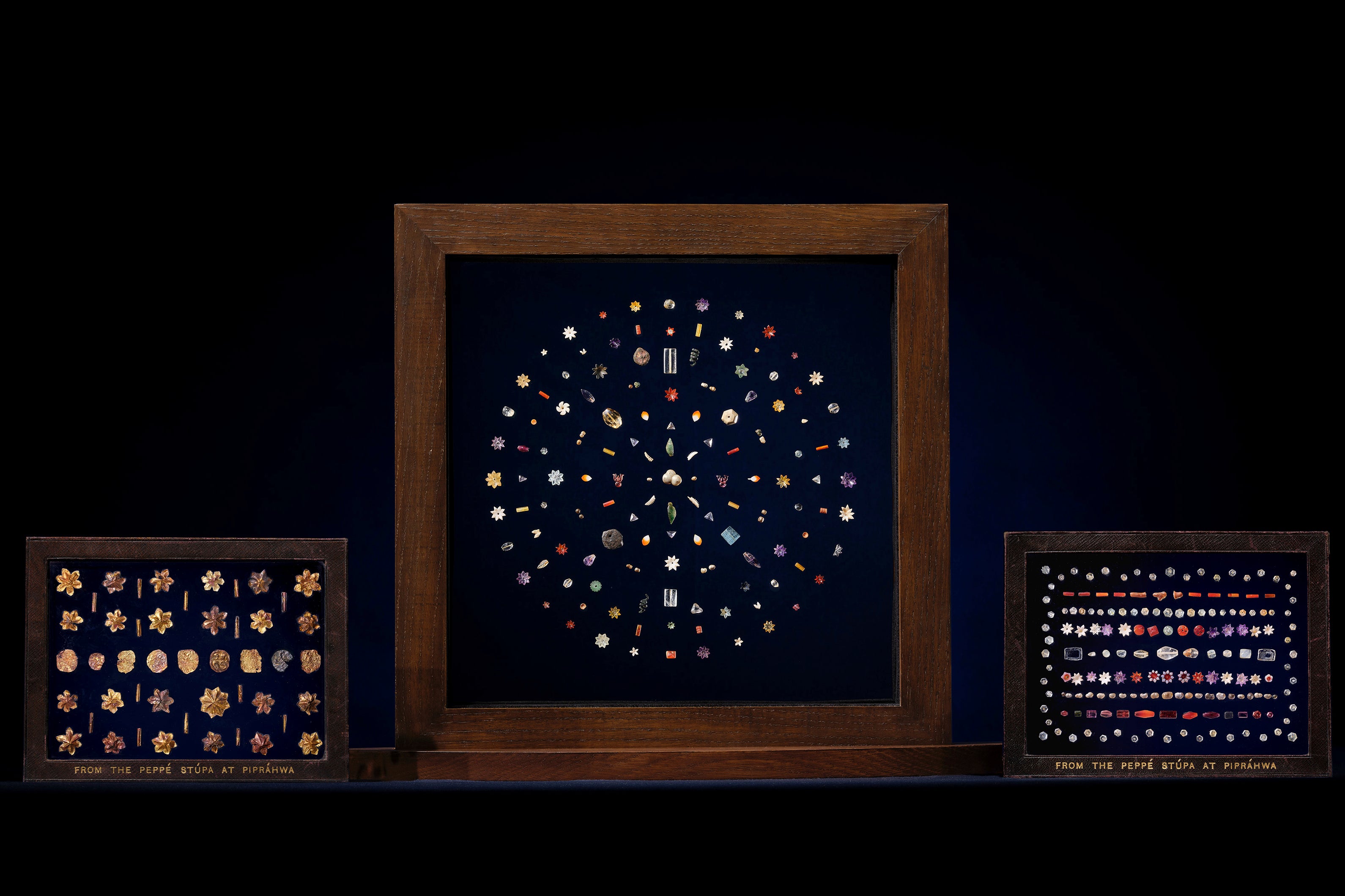Sotheby’s has cancelled a proposed sale of ancient gems linked to the Buddha and returned them to India following weeks of diplomatic and legal pressure.
The set of 334 relics, collectively known as the Piprahwa Gems, were originally buried in a stupa, a sacred Buddhist funerary mound, in Piprahwa in present day Uttar Pradesh state in northern India.
They are said to include offerings made during the reinterment of the Buddha’s remains more than 200 years after his death around 480BC.

Indian prime minister Narendra Modi described the return of the gems as a “joyous day for our cultural heritage”. “It would make every Indian proud that the sacred Piprahwa relics of Bhagwan Buddha have come home after 127 long years. These sacred relics highlight India’s close association with Bhagwan Buddha and his noble teachings,” he said in a post on X. “It also illustrates our commitment to preserving and protecting different aspects of our glorious culture.”
A joyous day for our cultural heritage!
— Narendra Modi (@narendramodi) July 30, 2025
It would make every Indian proud that the sacred Piprahwa relics of Bhagwan Buddha have come home after 127 long years. These sacred relics highlight India’s close association with Bhagwan Buddha and his noble teachings. It also… pic.twitter.com/RP8puMszbW
The gems were acquired via a public-private partnership between the Indian government and the Godrej Industries Group.
Indian culture minister Gajendra Singh Shekhawat said a “large portion” of the collection would be loaned to the National Museum in Delhi for five years and Godrej Industries would display the entire collection for three months after its arrival, according to The Indian Express.
“We are deeply honoured to contribute to this historic moment. The Piprahwa gems are not just artefacts, they are timeless symbols of peace, compassion, and the shared heritage of humanity. Our partnership with the Government of India reflects our deep commitment to preserving cultural legacies for future generations,” Pirojsha Godrej, executive vice chairperson of Godrej Industries Group, said in a statement.
A historic and deeply emotional moment for Bharat.
— Gajendra Singh Shekhawat (@gssjodhpur) July 30, 2025
After 127 years, the sacred Piprahwa relics of Bhagwan Buddha have returned home.
Discovered in 1898 and taken away during colonial times, these relics carry the fragrance of Dharma that has guided generations. (1/3) pic.twitter.com/KX4agUaN2t
The collection was originally discovered by William Claxton Peppé, a British colonial official and amateur archaeologist, at a site in Piprahwa.
The British crown took custody of the Peppé family’s findings under the 1878 Indian Treasure Trove Act, but the family was allowed to retain a fifth of the 1,800 gems.
While the crown’s gems went to the colonial museum in Kolkata, the family ended up consigning their artefacts to Sotheby’s, where they were scheduled to go on auction in Hong Kong in early May.
Bones and ashes in the collection were gifted to King Chulalongkorn, the Buddhist monarch of Siam, now Thailand.
The sale was called off after the Indian government demanded the gems be repatriated and threatened legal action saying the relics should be treated as the sacred body of the Buddha and the auction would be “participating in continued colonial exploitation”.
The gems were to go under the hammer with a starting bid of HK$100m (£9.7m) and included bone fragments, crystal and soapstone reliquaries, gold ornaments and precious stones such as garnets, pearls, coral, and amethysts.

After the gems were announced to go on auction, India’s culture ministry accused Sotheby’s of “participating in continued colonial exploitation” and said the relics must be treated not as archaeological specimens but rather as “the sacred body” of the Buddha, deserving of religious veneration.
"These relics – referred to as 'duplicate jewels' – constitute inalienable religious and cultural heritage of India and the global Buddhist community,” the ministry’s legal notice read.
“Their sale violates Indian and international laws, as well as United Nations conventions.”
Chris Peppé, a descendant of William Claxton Peppé, defended the auction, arguing it was the “fairest and most transparent” way to transfer the relics to Buddhists.
He maintained that the gems were not corporeal remains but offerings from a later period and asserted that their ownership was legally unchallenged.
In a post on Sotheby’s website, Mr Peppe said he and two cousins inherited the relics in 2013 and began research into their historical context.







